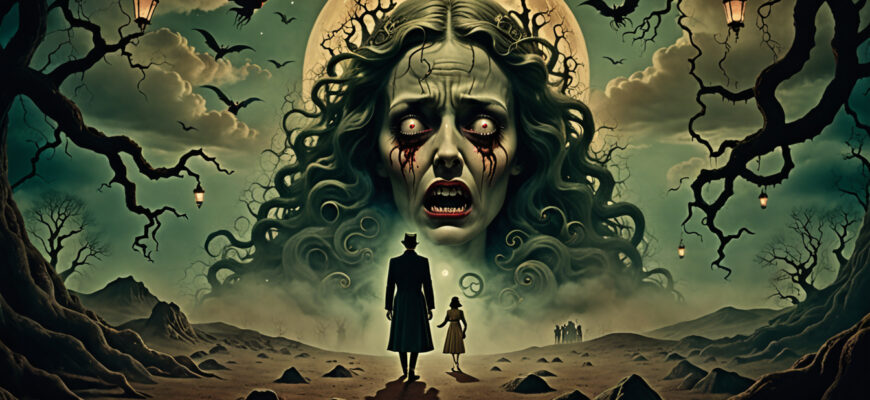Ever jolt awake in the middle of the night, heart pounding like you just ran from something—and for the life of you, can’t tell if it was real or just a bad dream? You’re not alone. Fear dreams mess with your head and your heart in ways that feel more intense, more exaggerated, and way more disturbing than your average dream. What’s wild is how legit it all feels—the danger, the dread, the pure survival-level panic—even though the threat is made of smoke and sleep.
But fear dreams aren’t just random horror shows your brain screens for fun. They show up when something inside you isn’t sitting right. Sometimes it’s old trauma rising up. Sometimes it’s suppressed anxiety or major life stress crashing your REM party. Other times, the fear is symbolic—nightmares don’t always wear name tags. Whether it’s falling, being chased, or getting stuck in a strange version of your own house, these dreams can act as emotional magnifiers for what you’re trying to outrun when you’re awake.
So, if your nights are filled with haunting faces, endless chases, or teeth crumbling in your mouth—yeah, this is something worth paying attention to. Here’s how fear dreams fry your nervous system, tap into your deepest triggers, and sometimes reveal what you refuse to acknowledge when you’re conscious. Let’s look at what’s really going on.
Understanding Fear Dreams: Why They Shake Us Awake
Fear dreams are different from just weird or unpleasant dreams. The emotion running the show is fear—pure, sometimes paralyzing fear. They can take the form of nightmares or night terrors, but those two aren’t the same thing. Nightmares are vivid, emotional, and usually remembered the next morning. Night terrors? You won’t even know they happened unless someone tells you you were screaming in your sleep.
What really sets fear dreams apart is what they do to your body. You’re still asleep, yet your nervous system is on red alert. Your brain shoots out cortisol and adrenaline like you’re in real danger. Blood pressure spikes. Your heart races. You sweat. You might jerk awake mid-dream—or lie there stunned, too freaked out to go back to sleep.
There’s no tiger in the room. But your brain sure thinks there is.
Why Do They Feel So Real?
When fear takes over your dreams, it’s not subtle. Your brain lights up similar to when it’s dealing with actual stress in real life. That’s thanks, in part, to a tiny part of your brain called the amygdala—it handles fear processing and emotional memory. During REM sleep (where most vivid dreams happen), this little powerhouse goes into overdrive.
Your rational brain—especially the prefrontal cortex—takes a backseat while you dream. So logic, reasoning, even time? All scrambled. That means even the weirdest dream scenario can feel dangerously legit in the moment.
Throw trauma into the mix, and things get even stickier. Your brain stores trauma as fragments—images, sounds, emotions—without full context, kind of like emotional flashcards. These fragments sneak into your dream world and come out twisted, cryptic, or horrifying. It’s not playtime for your neurons. It’s survival rehearsal.
The Psychology Behind Fear Dreams
There’s a short list of fear dream “greatest hits” that tend to show up for a lot of people:
- Being chased or hunted: A classic. Often by something you can’t see. Usually tied to avoidance or repressed fear.
- Trapped or frozen: You try to scream, run, or punch but can’t move. Interpreted as feeling powerless in waking life.
- Falling: Not tripping on stairs, but full-blown plunging—reflecting fear of failure or losing control.
- Teeth breaking or falling out: Yeah, it’s disturbing. Often linked to helplessness, shame, or fear of aging.
- Drowning: Emotion overload. Fear of being emotionally crushed by something you’re dealing with.
What makes these dreams even more telling is how often they repeat. According to therapists, recurrent fear dreams are big red flags. They usually mean something unresolved is begging for attention—grief, trauma, guilt, suppressed anger, or anxiety that you’ve pushed down for too long.
And don’t underestimate stress. When your REM cycle gets hijacked by stress hormones, your dreams become chaotic. Imagine emotional laundry that never got folded—fear dreams toss it all over your bedroom floor.
When A Nightmare Isn’t Just A Dream
Some fear dreams cross a line—from stressful to straight-up traumatic. People dealing with PTSD often relive the same terrifying dreams on loop. These aren’t random—they’re replays of real trauma. And they trigger the same emotional (and sometimes physical) reactions as the original event.
Then there’s sleep paralysis—a terrifying collision of wakefulness and dream imagery. You’re conscious but can’t move, while your brain throws disturbing visuals at you. Many describe seeing intruders, dark figures, or a chest-crushing weight. It’s not just a fear dream—it’s fear made flesh.
Mental health professionals treat stories like this seriously. Dream content often reveals what’s being buried. A recurring dream about trying to protect your kids in an emergency, being stalked by something invisible, or getting trapped in a collapsing house? These dreams can mirror internal trauma, anxiety, or even repressed memories.
Here’s a breakdown of commonly reported themes in therapy sessions and their emotional associations:
| Fear Dream Scenario | Common Emotional Trigger |
|---|---|
| Being chased | Avoidance, guilt, denial |
| Drowning | Overwhelm, grief, depression |
| Paralysis/trapped | Powerlessness, anxiety |
| Teeth falling out | Shame, fear of change |
| Recurring apocalypse dreams | Fear of transformation, chaos, insecurity |
The truth is, fear dreams aren’t just random bad nights. They’re deeply tied to what you don’t want to face. And even if you don’t remember the details, your body remembers how that fear felt. The opportunity? These dreams can be used like emotional GPS—they’re guiding you toward what needs healing, attention, and honesty.
The Symbolic Side of Fear Dreams: Messages in the Mayhem
Fear dreams don’t mess around—they hit hard and leave weird mental bruises. And everyone’s tried to decode them by grabbing their phone and typing “dream about falling teeth meaning” into Google at 3 a.m.—only to end up more confused. But interpretation can’t be outsourced to a search bar—it has to come from within.
Take shadowy figures or haunted houses chasing you. Yes—your literal house becoming the villain. If your once-safe space is shifting into a threat, that dream isn’t about architecture. It’s about your foundation, your comfort, maybe even your sense of identity crumbling or turning against you. A broken home showing up in dreams doesn’t mean termites—it might mean emotional fallout, family wounds, or the fear of stability slipping through your hands.
Dream logic rarely makes sense—that’s because it runs on emotion. A monster chasing you isn’t always the enemy. That thing might be an ugly truth you’re afraid to face or even parts of yourself that you haven’t accepted yet. And ask this: Are you really running away… or are you running toward something better? Sometimes the answer is in the direction.
Spiritual traditions add another layer: in many cultures, nightmares are believed to carry warnings from ancestors or signals that your spirit realm’s out of alignment. Some people respond with cleansing rituals—sea salt baths, sage smoke clearing, even sacred chants passed down through generations. Fear dreams get taken seriously—not just as mental blips, but spiritual smoke alarms.
Bottom line: don’t auto-Google your dreams like a prescription. Pay attention to the feelings they leave behind. They’re trying to talk. Listen honestly.
When Fear Dreams Get Weird
Some fear dreams go beyond slasher movie stuff into straight-up absurd territory—like spitting out whole mouthfuls of shattered teeth or being hunted by Teletubbies wearing suits. As unhinged as they seem, these dreams are often carrying real anxieties wrapped in nonsense packaging.
You’re late for an exam you never studied for? That’s the fear of being unprepared, exposed, or letting everyone down. Your pet turns evil or your favorite celeb attacks you? That’s less about them and more about betrayal, confusion, or fear of losing control.
- Teeth dreams? Often tied to shame, loss of control, or aging.
- Weird cartoon enemies? They might represent someone in your life who’s smiling while secretly being stressful.
- Absurd plot twists? Your mind dramatizing everyday tension into wild, night-film chaos.
Dreams this weird feel unexplainable, but your brain isn’t just goofing off—it’s exaggerating repressed stuff that never made it to the surface in daylight. Fear dreams work in symbols, not logic. Pay attention to how you felt in the dream, not just what happened. The emotion is the message.








